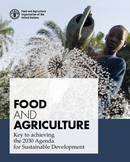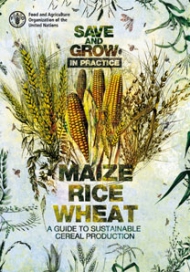Cambodia Country Strategic Plan (2019-2023)
<p>Cambodia has made great strides towards Sustainable Development Goal (SDG) 2 but needs to do more to achieve zero hunger by 2030. The Government’s mid-term and strategic review (MTSR)13 of the
<p>Cambodia has made great strides towards Sustainable Development Goal (SDG) 2 but needs to do more to achieve zero hunger by 2030. The Government’s mid-term and strategic review (MTSR)13 of the

Our planet faces multiple and complex challenges in the 21st century. The new 2030 Agenda for Sustainable Development commits the international community to act together to surmount them and transform
Climate change alters the agriculture production conditions and food security of developing countries, increasing the frequency and depth of risk to agricultural production and incomes. Policy-makers need
In the 1950s and 1960s, the Republic of Korea was one of the poorest and least developed countries in the world. Deforestation had stripped the country of half its forest cover, contributing to severe
The impact of the 2015‒2016 El Niño weather phenomenon has been one of the most intense and widespread in the past one hundred years. The agriculture, food security and nutritional status of 60 million
The publication is an important outputs of regional activity under the regional initiative on sustainable intensification of aquaculture for blue growth in Asia-Pacific. This publication is a very important
This report sets out the shifts in thinking, debate and approaches on agricultural development over recent decades. It charts the way in which these have come full circle, from the primacy of agriculture
Community-based forestry has shown itself to be a potent vehicle for promoting sustainable forest management, reducing poverty and generating jobs and income for rural communities, but unlocking its true
The purpose of this paper is examine the notion of tenure in connection with water resources and to explore whether the concept of water tenure has the potential to make a useful contribution towards resolving
Livestock keepers and policy makers worldwide are increasingly interested in harnessing animal biodiversity to improve production and food security on a warmer, more crowded planet, according to a new

A new FAO book out today takes a close look at how the world's major cereals maize, rice and wheat - which together account for an estimated 42.5 percent of human calories and 37 percent of our protein